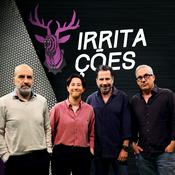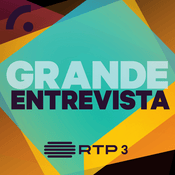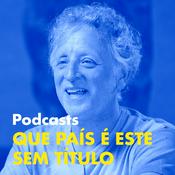14 episódios
- AI is changing how we work. It's turning us all into managers. Be a good one.
The Economist’s management columnist, Andrew Palmer, takes on the bots in the third season of Boss Class. From cloning to coding, agents to entry-level jobs, he tackles the threat head on and figures out how to turn anxiety into opportunity. Along the way he meets bulls and bears and the people who can help you to master management in the age of AI.
Full Season 3 out 29th January 2026.
To listen to the full series, subscribe to Economist Podcasts+.
https://subscribenow.economist.com/podcasts-plus
If you’re already a subscriber to The Economist, you have full access to all our shows as part of your subscription. For more information about how to access Economist Podcasts+, please visit our FAQs page or watch our video explaining how to link your account.
Hosted on Acast. See acast.com/privacy for more information. - Where did the world’s most devastating weapon come from? In a four-part series, we go behind the scenes at America's nuclear laboratories to understand how a scientific-mystery story about the ingredients of matter led to a world-changing (and second-world-war-ending) bomb less than five decades later.
Nuclear weapons have been central to geopolitical power ever since. Now America is seeking to modernise its stockpile and, in doing so, its scientists are pushing the frontiers of extreme physics, materials science and computing.
In episode one, we look at the birth of nuclear physics—the science that emerged early in the 20th century to answer a mystery: what is an atom actually made of?
Host: Alok Jha, The Economist’s science and technology editor. Contributors: Frank Close, a physicist and author of “Destroyer of Worlds”, a history of the birth of nuclear physics; Cheryl Rofer, a chemist who used to work at the Los Alamos National Laboratory (LANL); and Nicholas Lewis, a historian at LANL.
This episode features archive from the Atomic Heritage Foundation.
Listen to episode two here.
Transcripts of our podcasts are available via economist.com/podcasts.
This is a free episode. To continue listening to “The Bomb”, you’ll need to subscribe.
Listen to what matters most, from global politics and business to science and technology—subscribe to Economist Podcasts+.
For more information about how to access Economist Podcasts+, please visit our FAQs page or watch our video explaining how to link your account.
Hosted on Acast. See acast.com/privacy for more information. - Good bosses are rare. They don’t have to be. The skills of management can be learned.
The Economist’s management columnist, Andrew Palmer, is here to help. The second season of Boss Class features leaders at some of the world’s best performing companies, from Levi’s to Novo Nordisk to Google.
New episodes are out weekly starting May 12th.
To listen to the full series, subscribe to Economist Podcasts+.
https://subscribenow.economist.com/podcasts-plus
If you’re already a subscriber to The Economist, you have full access to all our shows as part of your subscription. For more information about how to access Economist Podcasts+, please visit our FAQs page or watch our video explaining how to link your account.
Hosted on Acast. See acast.com/privacy for more information. - A sophisticated, predatory, multi-billion dollar industry is emerging from the shadows. It already rivals the size of the illicit drug trade. And it’s about to get bigger and much more powerful.
The Economist’s Sue-Lin Wong follows a trail that starts with the collapse of a bank in rural Kansas to uncover a global, underground scam economy built around human trafficking, corruption and money laundering. Can it be stopped?
Available now.
To listen to the full series subscribe to Economist Podcasts+.
Hosted on Acast. See acast.com/privacy for more information. - Narendra Modi is one of the most popular politicians on the planet. India’s prime minister is eyeing a third term atop the world’s biggest democracy.
A tea-seller’s son, Mr Modi began life an outsider and the man behind the political phenomenon remains hard to fathom. India has become an economic powerhouse during his ten years in charge. But he’s also the frontman for a chauvinistic Hindu nationalist dogma.
Can Mr Modi continue to balance both parts of his agenda and finish the job of turning India into a superpower? The Economist’s Avantika Chilkoti finds out what makes him tick.
Launching June 2024.
To listen to the full series, subscribe to Economist Podcasts+.
If you’re already a subscriber to The Economist, you have full access to all our shows as part of your subscription. For more information about how to access Economist Podcasts+, please visit our FAQs page or watch our video explaining how to link your account.
Hosted on Acast. See acast.com/privacy for more information.
Mais podcasts de Notícias
Podcasts em tendência em Notícias
Sobre Babbage from The Economist
Babbage is The Economist’s weekly podcast on science and technology—named after Charles Babbage, the grandfather of computing. Explore the science changing the way we live from AI to genetics, particle physics and space travel with Alok Jha. This award-winning podcast features in-depth interviews with top scientists and special episodes investigating wellness trends. Published every Wednesday.If you’re already a subscriber to The Economist, you’ll have full access to all our shows as part of your subscription.For more information about Economist Podcasts+, including how to get access, please visit our FAQs page here https://myaccount.economist.com/s/article/What-is-Economist-Podcasts
Hosted on Acast. See acast.com/privacy for more information.
Sítio Web de podcastOuve Babbage from The Economist, O Princípio da Incerteza - Podcast e muitos outros podcasts de todo o mundo com a aplicação radio.pt

Obtenha a aplicação gratuita radio.pt
- Guardar rádios e podcasts favoritos
- Transmissão via Wi-Fi ou Bluetooth
- Carplay & Android Audo compatìvel
- E ainda mais funções
Obtenha a aplicação gratuita radio.pt
- Guardar rádios e podcasts favoritos
- Transmissão via Wi-Fi ou Bluetooth
- Carplay & Android Audo compatìvel
- E ainda mais funções


Babbage from The Economist
Leia o código,
descarregue a aplicação,
ouça.
descarregue a aplicação,
ouça.



































